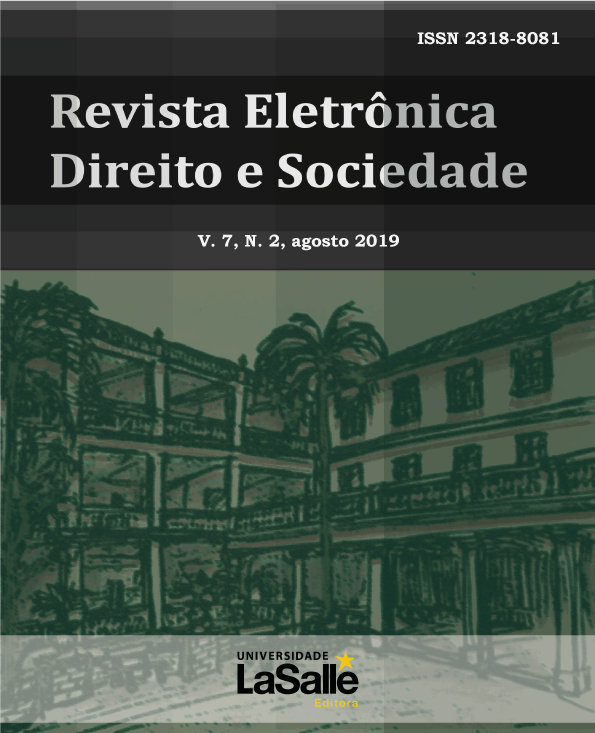The human and fundamental right to the inviolability of private property and the statutory term to file the indemnification lawsuit for indirect expropriation
DOI:
https://doi.org/10.18316/redes.v7i2.5392Keywords:
Human and Fundamental Right to the Inviolability of Private Property, Social Function of Property, Statutory Term, Indemnification Lawsuit for Indirect Expropriation, Judicial Interpretation.Abstract
This work seeks to resolve jurisprudential divergence constant in Superior Court of Justice, regarding the definition of the statutory term to file an indemnification lawsuit for indirect expropriation. The investigation is conducted by qualitative, descriptive and explanatory research, through the application of legal evaluation methods, based on documentary, bibliographical and legislative sources. It is more coherent to the Brazilian legal system, the application of the 15 years term contained in the caput of the article 1.238 from Civil Codification, rather the exceptional term of ten years constant in the single paragraph, which is destined to particular. Thus, should be conferred a restrictive interpretation for exceptional rule, increasing the possibility of effective reparation of the damage caused to the core of the human and fundamental right to the inviolability of private property, attributing to it the maximum effectiveness constitutionally required.
Downloads
Published
Issue
Section
License
Authors who submit their manuscripts for publication in the “REDES” Magazine agree to the following terms:
The authors claim to be aware that they retain copyright by giving “REDES” the right to publish.
The authors declare to be aware that the work submitted will be licensed under the Creative Commons Non-Commercial Attribution License which allows article sharing with acknowledgment of authorship and publication in this journal.
The authors declare to be aware that by virtue of the articles published in this journal have free public access.
The authors declare, under the penalty of the law, that the text is unpublished and original and that they are aware that plagiarism has been identified, plagiarized authors will be informed - willingly, to take legal action in the civil and criminal sphere - and, plagiarists will have their access to the magazine blocked.
The authors state that - in case of co-authoring - all contributed significantly to the research.
Authors are obliged to provide retractions and (or) corrections of errors in case of detection.
The authors are obliged not to publish the text submitted to “REDES” in another electronic journal (or not).
The Electronic Journal Law and Society - REDES - is licensed under a Creative Commons License. Attribution-NonCommercial 4.0 International.Based on work available at "http://revistas.unilasalle.edu.br/index.php/redes/about/submissions#copyrightNotice".
Permissions in addition to those granted under this license may be available at http://creativecommons.org/.

